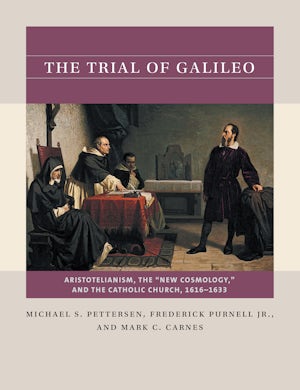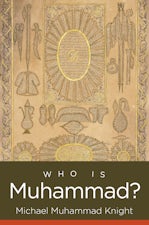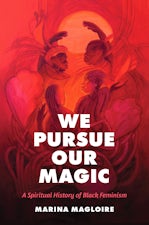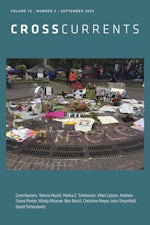The Trial of Galileo
Aristotelianism, the "New Cosmology," and the Catholic Church, 1616–1633
By Michael S. Pettersen, Frederick Purnell, Jr., Mark C. Carnes
Approx. 224 pp., 8.5 x 11, 88 halftones, 9 tables, appends
-
Paperback ISBN: 978-1-4696-7081-2
Published: July 2022 -
E-book EPUB ISBN: 978-1-4696-7240-3
Published: July 2022 -
E-book PDF ISBN: 979-8-8908-6399-7
Published: July 2022
Reacting to the Past
Buy this Book
- Paperback $30.00
- E-Book $19.99
For Professors:
Free E-Exam Copies
This title is not eligible for UNC Press promotional pricing.
About the Authors
Michael S. Pettersen was Joseph A. Walker Professor and Chair of Physics at Washington and Jefferson College.
For more information about Michael S. Pettersen, visit
the
Author
Page.
Frederick Purnell Jr. was professor of philosophy at Queens College and the Graduate Center of the City University of New York.
For more information about Frederick Purnell, Jr., visit
the
Author
Page.
Mark C. Carnes is professor of history at Barnard College.
For more information about Mark C. Carnes, visit
the
Author
Page.




